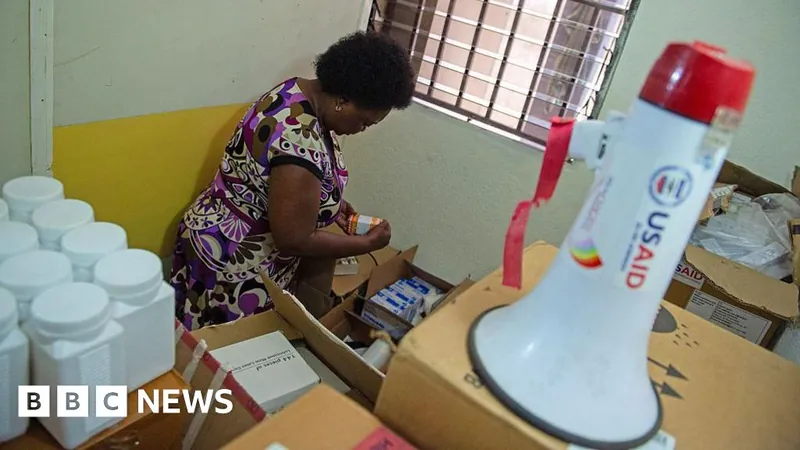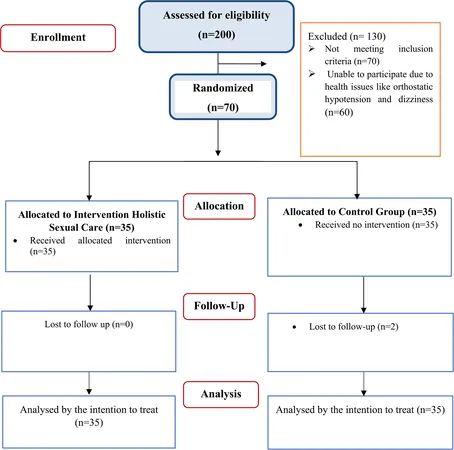
Protect Yourself This Winter: Essential Tips to Combat Norovirus, COVID-19, Flu, and RSV
2025-01-11
Author: Charlotte
Distinguishing Between Common Illnesses
Identifying the specific virus affecting you can be tricky, as symptoms often overlap. Here’s a breakdown of common symptoms associated with each illness: - **Norovirus:** This highly contagious stomach bug spreads through contaminated water and surfaces, causing nausea, vomiting, diarrhea, and stomach pain lasting from 24 hours to three days. - **Common Cold:** Various viruses trigger cold symptoms like a runny nose, sneezing, sore throat, congestion, and low-grade fever. Colds typically resolve quickly, within a week or so. - **Flu (Influenza):** Characterized by sudden onset fever, chills, cough, sore throat, fatigue, and body aches, flu symptoms arise rapidly and can linger for up to two weeks. - **COVID-19:** A virus that continues to evolve, it can cause fever, chills, shortness of breath, loss of taste or smell, and fatigue for several days. - **RSV (Respiratory Syncytial Virus):** Commonly seen in children, RSV generates symptoms such as a runny nose, wheezing, and fever, often lasting one to two weeks.
Hand Hygiene is Your Best Defense
One of the simplest yet most effective steps to prevent the spread of all these viruses is rigorous handwashing. Ensure to wash your hands with soap for at least 20 seconds, especially after using the restroom or preparing meals. If soap and water aren’t available, use a hand sanitizer that contains at least 60% alcohol, but remember, this may not eliminate norovirus.
Clean Contaminated Surfaces
If exposed to norovirus, you should act swiftly to disinfect surfaces that have been contaminated. The CDC suggests using a bleach solution or EPA-approved disinfectants. Always wash any fabrics that have come into contact with vomit or feces in hot water, as cleaning surfaces can greatly reduce the risk of further spread. Regularly disinfecting high-touch surfaces like doorknobs, light switches, and your phone is also vital in the fight against colds and flu.
Keep Your Hands Away from Your Face
Viruses are transmitted through respiratory droplets, so try to minimize facial contact. If you find yourself coughing or sneezing, cover your mouth with a tissue. Afterward, ensure to wash your hands thoroughly.
Consider Vaccinations
Staying updated with your vaccinations is key this winter. The annual flu shot is recommended, along with updated COVID-19 vaccine options. For those at higher risk, like individuals over 60 or pregnant women, seeking the RSV vaccine can provide additional protection. Unfortunately, a vaccine for norovirus and the common cold remains unavailable, underscoring the importance of hygiene.
Rest and Hydrate
Your immune system needs adequate rest to fend off sickness effectively. Sleep deprivation and stress can weaken your defenses, making you more susceptible to infections. Maintain hydration by drinking plenty of fluids, particularly if you feel under the weather.
If You Get Sick, Stay Home
Should you feel unwell, accurate testing can determine your illness, whether it’s COVID-19 or influenza. This is crucial to accessing effective treatments like Paxlovid or Tamiflu, which can avert severe illness. Above all, isolating yourself from others is critical to prevent spreading the illness. For treatment at home, rest, hydrate, and consider pain relievers for discomfort. Unfortunately, there’s no cure for norovirus, but rehydrating with fluids can help combat dehydration.
Stay vigilant this winter—proactive actions can keep you healthier and safer amidst the surge of seasonal illnesses!









 Brasil (PT)
Brasil (PT)
 Canada (EN)
Canada (EN)
 Chile (ES)
Chile (ES)
 Česko (CS)
Česko (CS)
 대한민국 (KO)
대한민국 (KO)
 España (ES)
España (ES)
 France (FR)
France (FR)
 Hong Kong (EN)
Hong Kong (EN)
 Italia (IT)
Italia (IT)
 日本 (JA)
日本 (JA)
 Magyarország (HU)
Magyarország (HU)
 Norge (NO)
Norge (NO)
 Polska (PL)
Polska (PL)
 Schweiz (DE)
Schweiz (DE)
 Singapore (EN)
Singapore (EN)
 Sverige (SV)
Sverige (SV)
 Suomi (FI)
Suomi (FI)
 Türkiye (TR)
Türkiye (TR)
 الإمارات العربية المتحدة (AR)
الإمارات العربية المتحدة (AR)